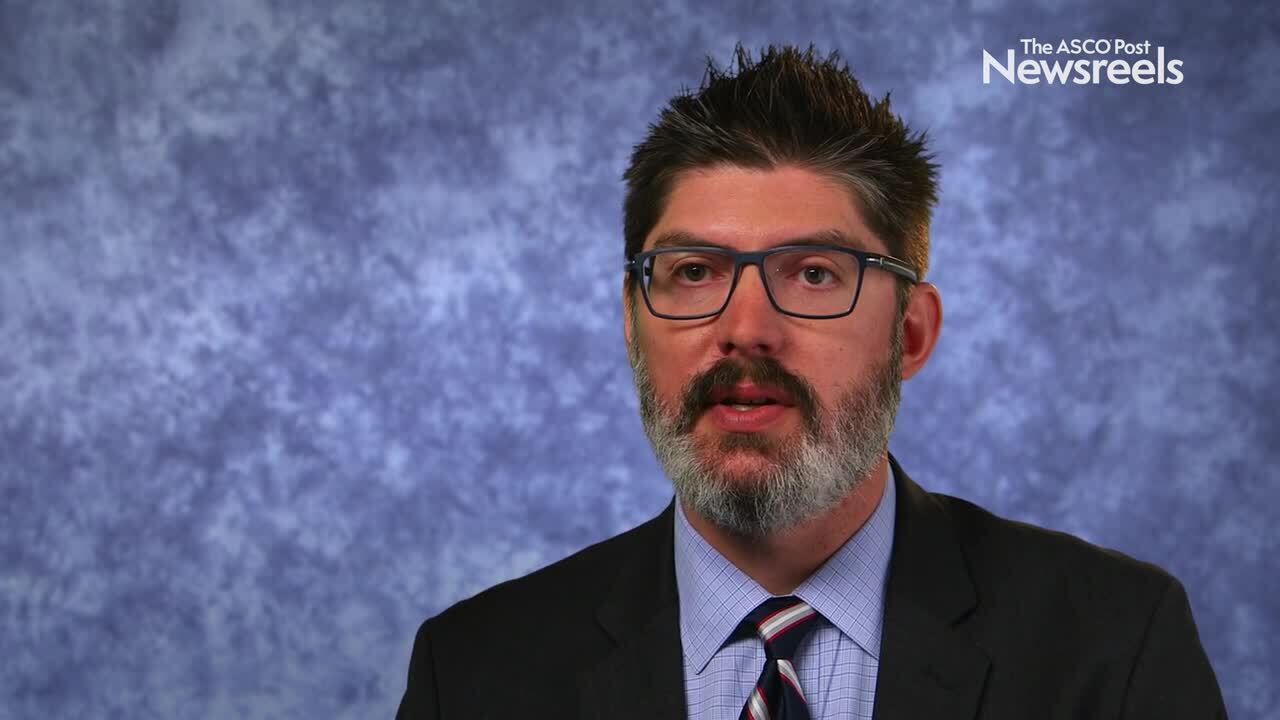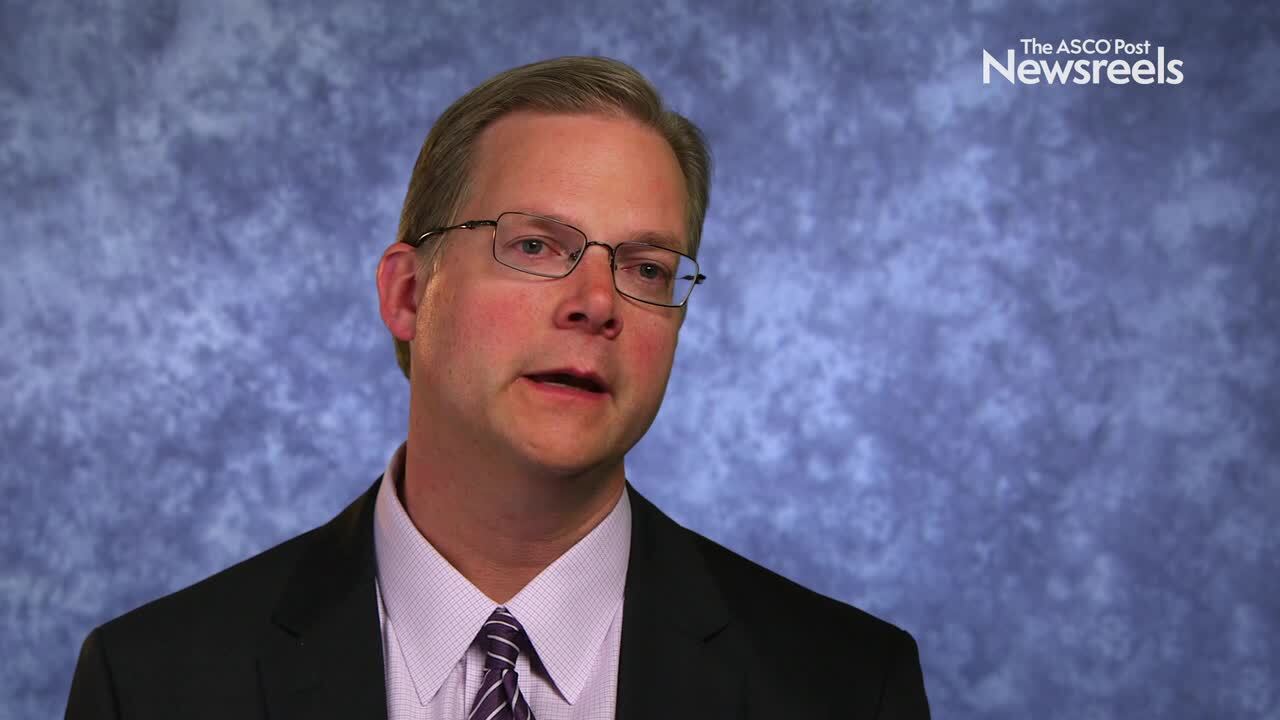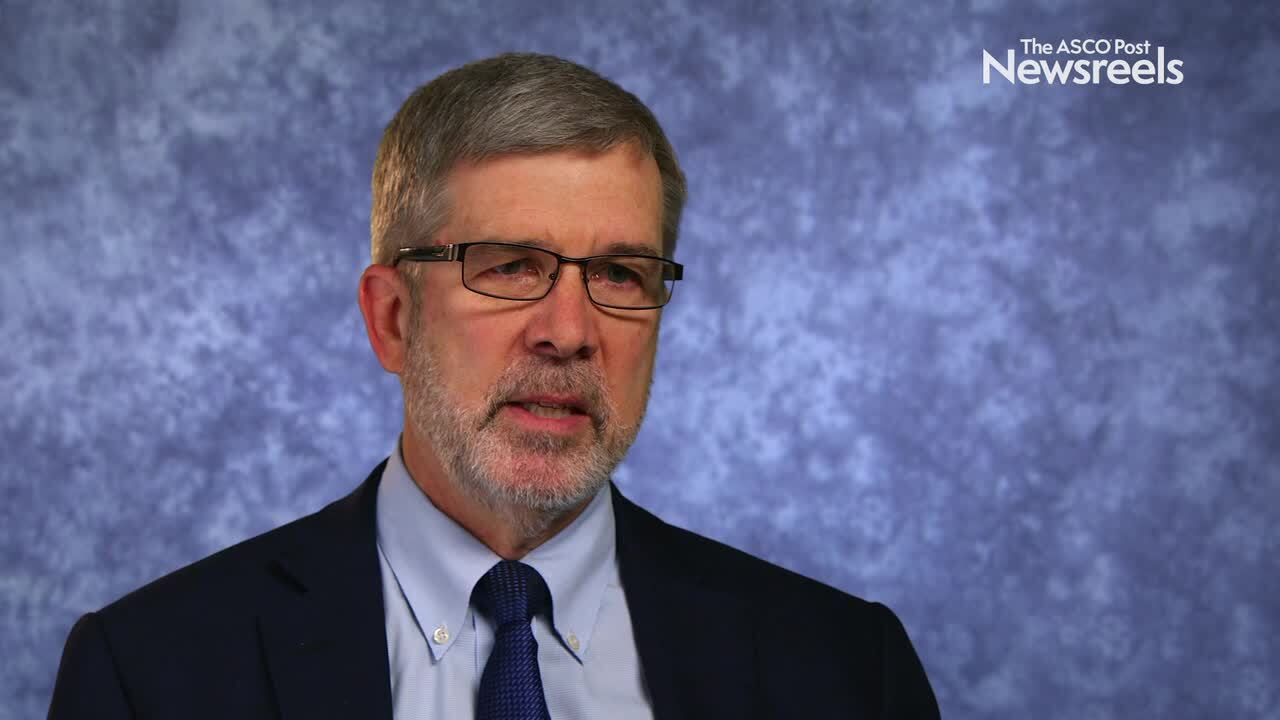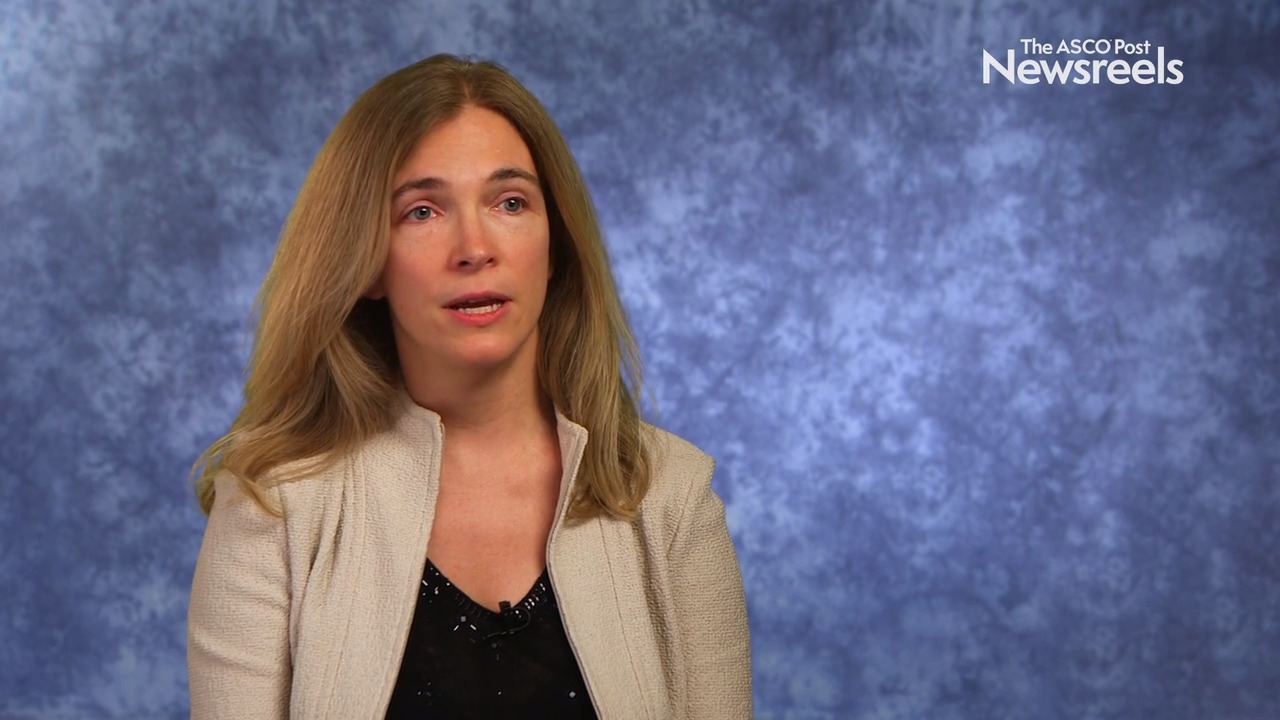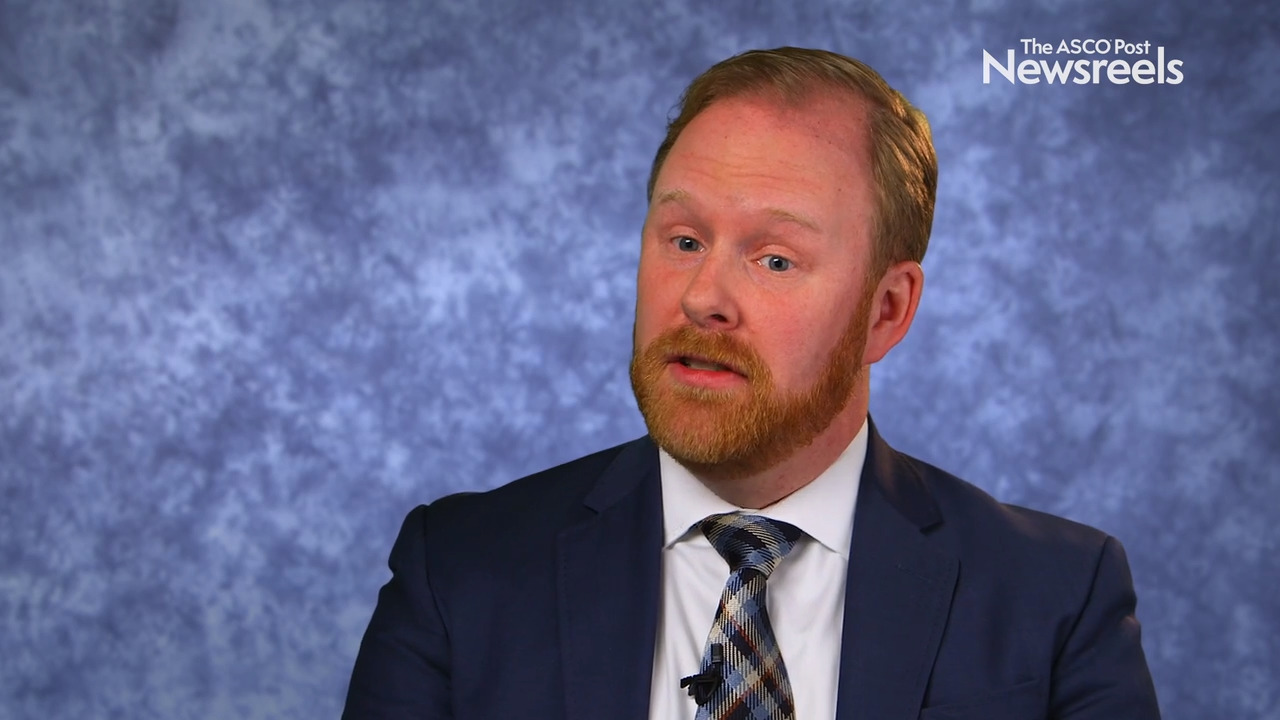Margaret A. Tempero, MD, on Pancreatic Cancer: NCCN Guidelines Updates
NCCN Annual Conference 2019
Margaret A. Tempero, MD, of the UCSF Helen Diller Family Comprehensive Cancer Center, discusses new adjuvant therapy options for patients with pancreatic cancer, and germline testing, including testing for microsatellite instability/mismatch repair genes as well as molecular analysis of all tumors.
Frederick L. Locke, MD, of the H. Lee Moffitt Cancer Center and Research Institute, discusses recent approvals of chimeric antigen receptor T-cell therapies in leukemia and lymphoma, and how clinicians are using infrastructure, navigation, and early referrals to maximize response and minimize toxicity.
Wells A. Messersmith, MD, of the University of Colorado Cancer Center, discusses results of recent clinical trials, emerging treatment options, and approaches that may improve outcomes in patients with metastatic colorectal cancer.
James L. Mohler, MD, of the Roswell Park Comprehensive Cancer Center, discusses updated recommendations in prostate cancer: more specificity for family history and genomic sequencing, as well as the evolving uses of androgen-deprivation therapy.
Chrysalyne Schmults, MD, of Brigham and Women’s Hospital, discusses treatment strategies in these nonmelanoma skin cancers, including surgery, forthcoming staging systems, and ongoing trials combining adjuvant radiotherapy and immunotherapy.
Matthew A. Gubens, MD, of the UCSF Helen Diller Family Comprehensive Cancer Center, discusses recent updates to the NCCN Guidelines in non–small cell lung cancer, including the use of pembrolizumab as a single agent or in combination based on PD-L1 status, treatment selection in squamous and nonsquamous patients, and how mutational status affects treatment strategy.
